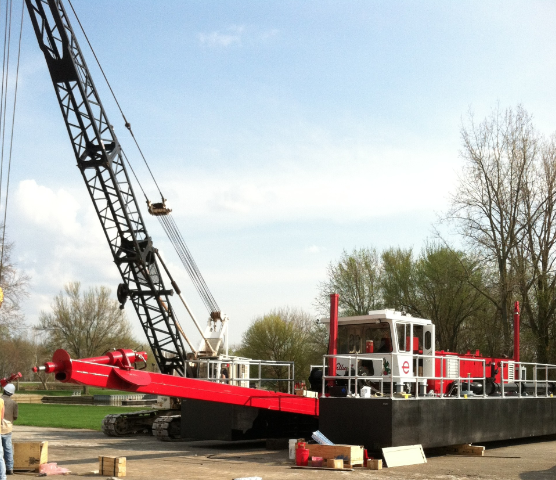
The Ohio Department of Natural Resources (ODNR) recently finished the 2017 dredging season, having removed 1,053,042 cubic yards of dredge material from state park lakes and other state properties. Last year, a total of 1,011,458 cubic yards of sediment were removed statewide.
“Dredging is critical at our state park lakes to improve boater access and water quality,” ODNR Director James Zehringer said. “The work our staff did for dredging in 2017 led to a new record of more than 1 million cubic yards of sediment removed to help clean out and increase water depth at some of our state park lakes, which is a credit to their commitment to improving the experiences of our state park visitors.”
In 2017, ODNR worked to excavate and remove sediment from navigable waterways, including Grand Lake St. Marys, Indian Lake and Lake Loramie. This practice increases navigability and water quality by removing and relocating phosphorus-rich sediment to designated dredge material relocation areas.
Grand Lake St. Marys had a record year of dredging with 455,000 cubic yards being removed, which beat the 2016 record of 405,523 cubic yards. Lake Loramie also experienced a record-breaking year for removing dredge material by taking out 106,058 cubic yards of sediment, exceeding the 2015 record of 72,000 cubic yards. Indian Lake removed 110,800 cubic yards of dredge material, also beating the 2016 record of 100,054 cubic yards.
ODNR dredges removed enough material from Ohio’s lakes this year to fill 81,003 dump trucks, and if those dump trucks were lined up bumper to bumper, they would stretch 383.5 miles. Other dredging sites for 2017 included Buckeye Lake, Cowan Lake, East Harbor, Findley and Rocky Fork state parks.
The next dredging season will begin in April 2018. ODNR remains committed to ensuring the safety of boaters and improving the health of the state’s waterways.
